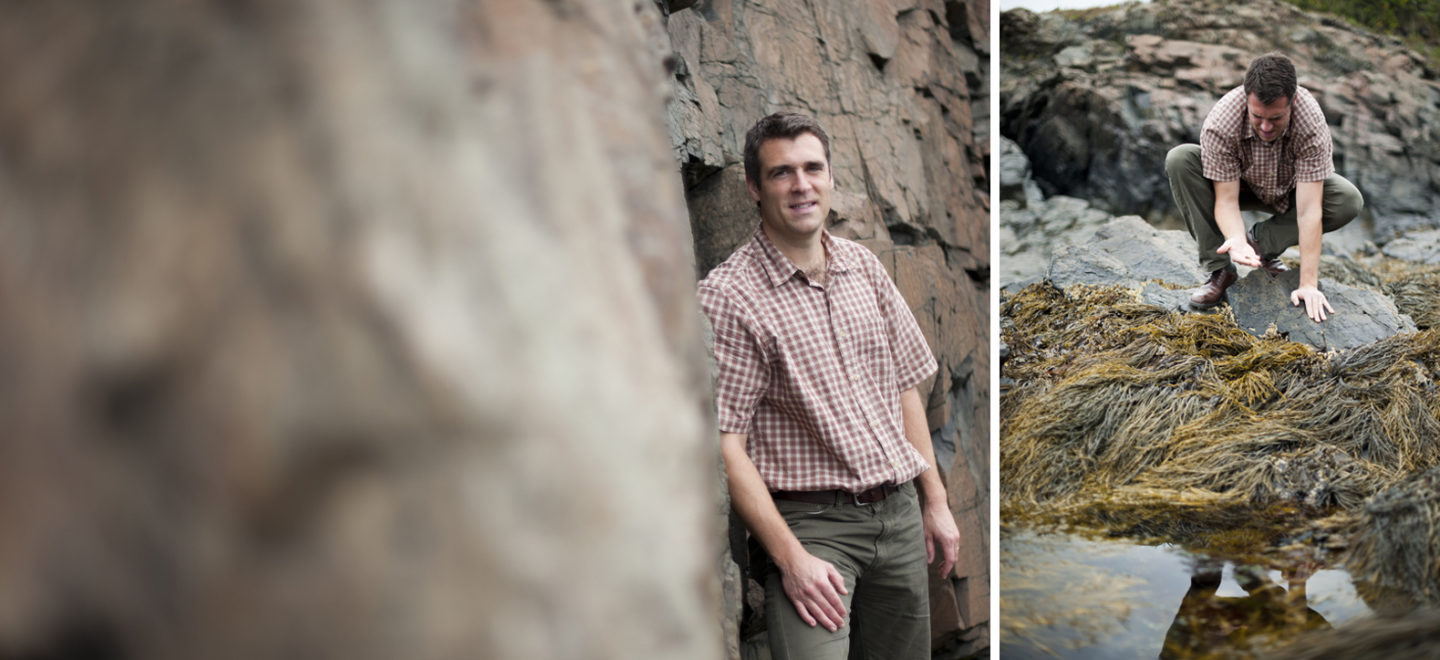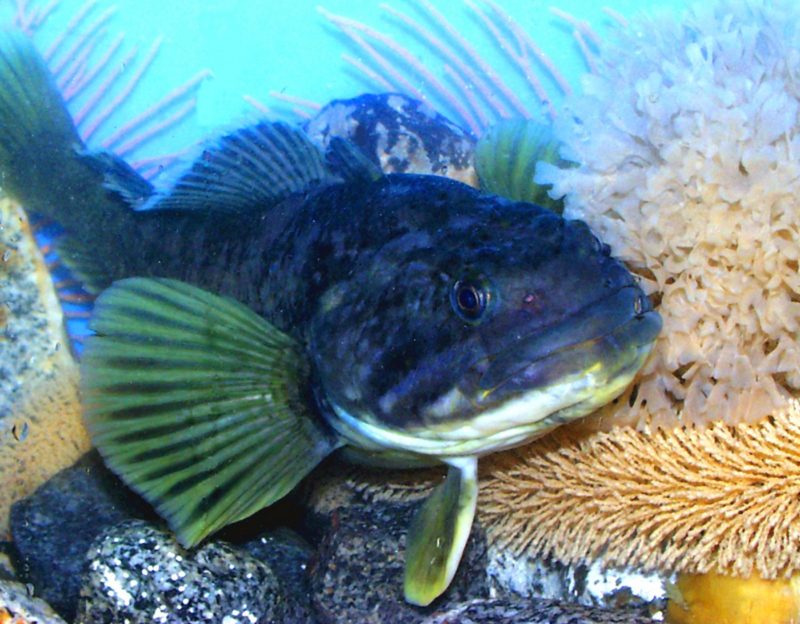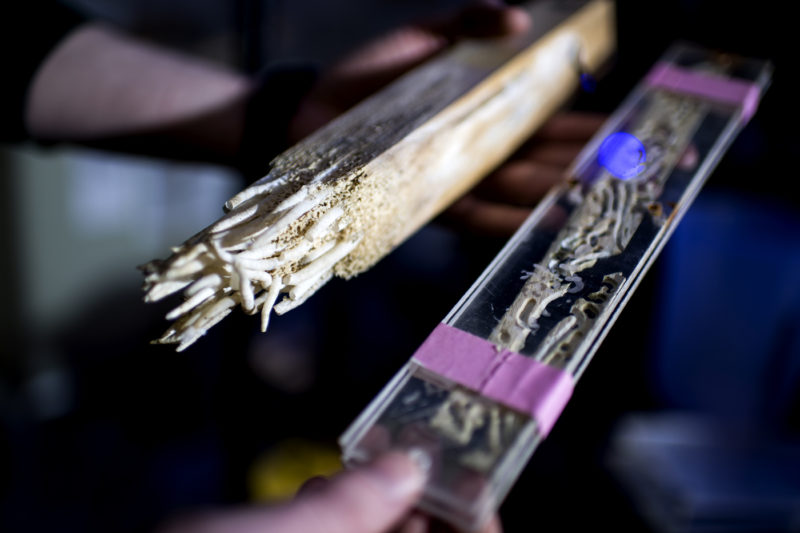With their round, furry faces and tendency to hold hands while they sleep, sea otters seem almost perfectly built to appeal to our sense of the adorable. But they also play a vital role in protecting their ecosystem from the effects of climate change.
Sea otters are what scientists refer to as a keystone species—their presence keeps an entire ecosystem in balance. In a recent paper, Justin Ries, a professor of marine and environmental sciences at Northeastern, and his colleagues demonstrated how keystone predators like sea otters can help mitigate the effects of climate change and give an ecosystem a fighting chance.

“It’s really an example of the importance of ecosystem stability when climate change is occurring,” Ries says. “If the ecosystem is healthy, the system can withstand more climate change stress than when the system is out of balance for ecological reasons, like the top predators removed.”
The researchers focused on the frigid waters around the Aleutian Islands, which curl off the southwestern tip of Alaska. Here, forests of looming kelp fronds provide homes and habitats for a bevy of marine life, including sea otters and their favorite prey—sea urchins.
Sea urchins are grazers. They have five sharp teeth that come together on the bottom of their body to grind down and devour whatever they climb on top of, including the stems of kelp. Sea otters protect kelp forests by chowing down on the urchin population.
“In the system without the otters, there could be 100 urchins in a 10 foot by 10 foot square space,” Ries says. “The kelp are gone, and it just looks like a desert.”
Parts of the Aleutian Islands are packed with otters, but in some places, populations have dropped in recent decades because of disease, hunting, and other factors. And because of the dramatic rise in global carbon dioxide emissions, urchins in these otter-free areas are doing more damage than ever before.
According to the National Oceanic and Atmospheric Administration, an estimated 30 percent of the carbon dioxide in our atmosphere dissolves into the ocean. When it does, it sets off a chain of chemical reactions that makes the ocean more acidic and uses up molecules that many ocean animals need to build their shells. These combined factors weaken structures like the calcified reefs of bright pink algae that form the bedrock in the Aleutian Islands and anchor the towering kelp forests—a habitat that protects many forms of marine life.
In large tanks at Northeastern’s Marine Science Center in Nahant, Massachusetts, Ries and his team recreated the past, present, and predicted future oceanic conditions around the Aleutian Islands. They seeded these tanks with algae and sea urchins—with no sea otters to limit the urchin population.
In the past, sea urchins would scrape and chew their way along the ocean floor—“like little lawnmowers,” Ries says—removing the top layer of algae and leaving a streak of white across the pink beds. The algae’s limestone skeleton would keep the urchin teeth from biting too deeply, leaving a lower layer of algae to regrow. But the researchers found that in acidified ocean conditions, the skeleton was weaker and the urchins broke through, leaving a dead patch.
“Ocean acidification is making it easier for the urchins to graze and degrade that basement layer the kelp attach to,” Ries says. “And that exacerbates the impacts of removing the sea otter, the predator, from the system.”
In areas around the Aleutian Islands where sea otter populations have dropped, the researchers found that pink algae, and the kelp that clings to it, is disappearing. But in areas where sea otters keep the urchins in check, the reefs remain healthy, Ries says.
“One way to mitigate the impacts of ocean acidification is to keep the predators intact, because then that will disrupt things like urchins exploiting the weakened algae,” Ries says. “A healthy person is going to be able to withstand an illness from the outside better than an unhealthy person. It’s the same thing with an ecosystem.”
For media inquiries, please contact Mike Woeste at m.woeste@northeastern.edu or 617-373-5718.
The Link LonkFebruary 02, 2021 at 07:37PM
https://ift.tt/3ajLwoI
Sea otters are a lifeline for reefs in a changing ocean - News@Northeastern
https://ift.tt/2CoSmg4
Sea


/cloudfront-us-east-2.images.arcpublishing.com/reuters/CZF6NULMVVMEXHOP7JK5BSPQUM.jpg)
No comments:
Post a Comment